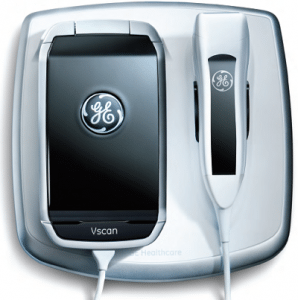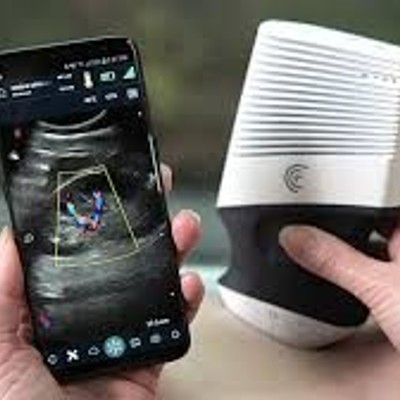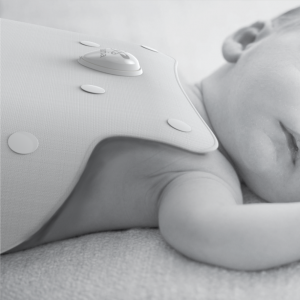
Agriculture
February 8, 2024
GE VScan Pocket Ultrasound
Read SolutionImplemented by
GE Healthcare

Updated on February 8, 2024
·Created on June 13, 2017
The Clarius Ultrasound is an app-based, wireless, handheld ultrasound scanner.
The Clarius Ultrasound is an app-based, wireless, handheld ultrasound scanner. The Clarius C3 is made for performing ultrasound scans of the abdomen and lungs and also features a virtual phased array for quick scans of the heart. The other device is the Clarius L7, and Clarius L15 a procedural guidance and superficial imaging scanner.
Market Suggested Retail Price
$4,900.00
Target Users (Target Impact Group)
Small and Medium-sized Enterprises, Public Sector Agencies
Distributors / Implementing Organizations
Distributed by manufacturer
Competitive Landscape
Direct competitors include Healcerion Sonon 300C, dDopp, GE LOGIQ V2, and GE VScan Pocket Ultrasound.
Regions
Worldwide
Manufacturing/Building Method
This product is mass-produced by Clarius.
Intellectural Property Type
Patent
User Provision Model
Users can obtain the product from the Clarius Website. Clarius Scanners are also available from a network of distribution partners in parts of Europe and the Middle East. The Clarius Ultrasound App can be downloaded from the Google Play Store or Apple Store.
Distributions to Date Status
Unknown
Power supply type
Rechargeable batteries (charger included), iPhone or Android
Consumables
Ultrasound gel. Depending on the country of purchase, the product may also include a one-time use sachet for the ultrasound gel.
Indispensable equipment for function (Y/N)
Yes
Maintenance or calibration required by user at time of use? (Y/N)
No
Scanning modes
2D, color doppler (available for certain devices), virtual phased-array
Clinical application
Abdominal, lung, cardiac, procedural guidance
Display
iOS or Android device
Probe frequency (MHz)
For the C3: 2-6 MHz, for the L7: 4-13 MHz, for the L15: 5-15 MHz
Design Specifications
The Clarius ultrasound is a handheld ultrasound scanner that can operate as a standard convex array probe to image the abdomen and lungs, and a virtual phased array probe for cardiac imaging. In-detail product specifications can be found on the website.
C3 1st generation: Curvilinear Scanner
L7 1st generation: High frequency linear
L15 HD: High frequency linear
Technical Support
Clarius provides technical support through their website. The device includes automated gain and frequency settings which eliminate the need for calibration by the user at the time of use.
Replacement Components
Clarius provides spare or replacement components, referenced in their product terms and conditions.
Lifecycle
Three-year warranty, five-year lifetime.
Manufacturer Specified Performance Parameters
The team set out to design a low-cost portable handheld ultrasound that produces image quality comparable to that of a much more expensive device (~70,000 USD).
Vetted Performance Status
Clinical trials and studies have been carried out including a phantom study to validate a novel 3D handheld ultrasound system in imaging scoliosis and carried out clinical trials to assess equivalency of the transabdominal Clarius handheld wifi C3 ultrasound.
Safety
Instructions and warnings to use the product safely can be found on the user manual. Several studies were carried out to ensure that the device is safe for in clinical applications.
Complementary Technical Systems
iOS or Android device, Clarius app
Academic Research and References
Lou, E., Nguyen, D., Hill, D., & Raso, J., 2021, “Validation of a novel handheld 3D ultrasound system for imaging scoliosis–phantom study,” In Research into Spinal Deformities 9 IOS Press, pp. 100-105.
Winiker, K., et al., 2021, “Ultrasound: Reliability of a Pocket-Sized System in the Assessment of Swallowing,” Journal of Speech, Language, and Hearing Research, 64(8), pp. 2928-2940.
Moussaoui, G., Zakaria, et al., 2021, “Accuracy of Clarius, Handheld Wireless Point-of-Care Ultrasound, in Evaluating Prostate Morphology and Volume Compared to Radical Prostatectomy Specimen Weight: Is There a Difference between Transabdominal vs Transrectal Approach?,” Journal of Endourology.
Dickie, K., 2019, “Wireless ultrasound,” Clarius White Paper, pp. 1-4.
Hammond, R., 2020, “A pilot study on the validity and reliability of portable ultrasound assessment of swallowing with dysphagic patients, ” Canterbury.
Alsinan, A. Z., Patel, V. M., & Hacihaliloglu, I., 2019, “Automatic segmentation of bone surfaces from ultrasound using a filter-layer-guided CNN,” International Journal of computer-assisted radiology and surgery, 14(5), pp. 775-783.
Stuart, F., James, M., Mark, L., et al., 2009, “A New 15–50 MHz Array-Based Micro-Ultrasound Scanner for Preclinical Imaging,” Ultrasound in Medicine & Biology, Vol. 35, pp. 1700-1708.
Mawia, K., Katherine, B., Kevin, J., Kenneth, H., 2019, ‘Real-time H-scan ultrasound imaging using a Verasonics research scanner,” Ultrasonics, Vol. 94, pp. 28-36.
Clarius, “Patents and Trade market”
Clarius, “Warranty”
PR Newswire, “Clarius Wireless Ultrasound Receives FDA 510(k) Clearance“, 2016
Clarius, “App: Google Play and App Store“
Compliance with regulations
Devices are FDA-cleared and the Company is ISO certified
Evaluation methods
The device was evaluated through a phantom study, clinical trials, and other several clinical studies.
Other Information
The scanner uses point-to-point Wi-Fi and Bluetooth to operate. You will need an Internet connection initially to download the Clarius App to your Android or iOS smart device and if you want to save images to the Clarius Cloud or transmit images via DICOM (available mid-2017).
To use the scanner outside an existing wireless network, select "Wi-Fi Direct" in the scanner selection page (this is the default option), and once booted, the App will prompt you to connect to the Wi-Fi Direct network of the scanner.

Agriculture
February 8, 2024
Implemented by
GE Healthcare

Agriculture
March 8, 2024
Implemented by
Bloom Standard
Have thoughts on how we can improve?
Give Us Feedback